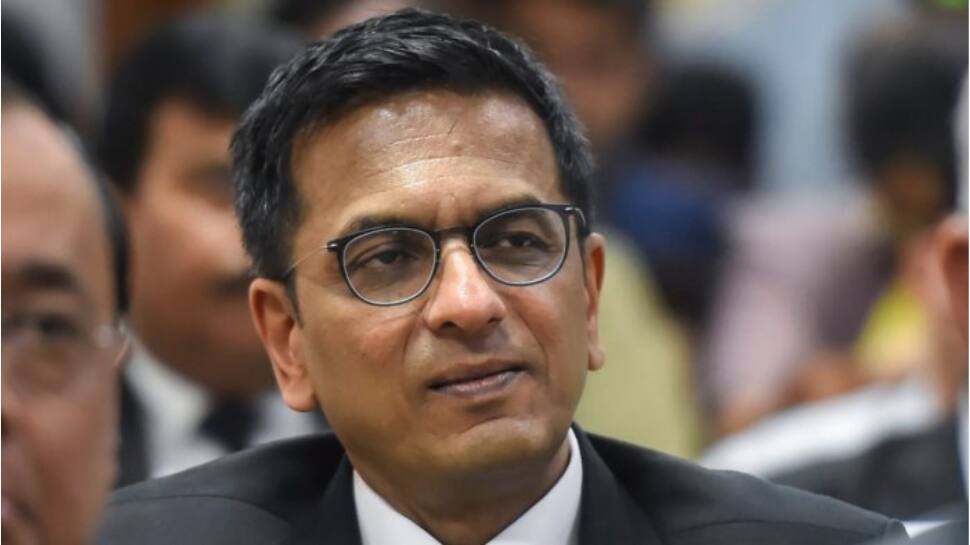New Delhi: Justice DY Chandrachud will be appointed the 50th Chief Justice of India on November 9, Union Law Minister Kiren Rijiju said on Monday (October 17, 2022). He will take oath a day after incumbent CJI Justice Uday Umesh Lalit demits office on attaining the age of 65. The outgoing CJI had on October 11 recommended to the Centre the name of Justice Chandrachud as his successor.
"In exercise of the power conferred by the Constitution of India, Hon'ble President appoints Dr. Justice DY Chandrachud, Judge, Supreme Court as the Chief Justice of India with effect from 9th November, 22," Rijiju tweeted.
Extending my best wishes to Justice DY Chandrachud for the formal oath taking ceremony on 9th Nov. https://t.co/awrT3UMrFy pic.twitter.com/Nbd1OpEnnq
— Kiren Rijiju (@KirenRijiju) October 17, 2022
While Justice UU Lalit has a brief tenure of 74 days, Justice Chandrachud will serve as the CJI for two years. He will demit office on November 10, 2024.
Who is Justice DY Chandrachud, the next Chief Justice of India?
Dhananjaya Yashwant Chandrachud was born in Mumbai, Maharashtra on November 11, 1959. He is the son of the longest-serving CJI YV Chandrachud, who was also the head of the Indian judiciary from February 22, 1978, to July 11, 1985.
DY Chandrachud did BA with Honours in Economics from Delhi University's St Stephen's College and then received his LLB degree from Delhi University's Campus Law Centre.
He has also obtained an LLM degree and a Doctorate in Juridical Sciences (SJD) from Harvard Law School in the US.
Chandrachud was appointed Judge of the Supreme Court on May 13, 2016. Prior to that, he was the Chief Justice of the Allahabad High Court since October 31, 2013.
He has also been the Judge of the Bombay High Court from March 29, 2000, until his appointment as Chief Justice of the Allahabad HC. DY Chandrachud was also the Director of the Maharashtra Judicial Academy.
Until his appointment as a Judge, he served as the Additional Solicitor General of India from 1998.
DY Chandrachud has been part of several Constitution benches, landmark verdicts of Supreme Court
Justice DY Chandrachud has been part of several Constitution benches and landmark verdicts of the top court including on matters relating to the Ayodhya land dispute. On November 9, 2019, the apex court in a unanimous verdict cleared the way for the construction of a Ram Temple at the disputed site at Ayodhya and directed the Centre to allot a 5-acre plot to the Sunni Waqf Board for building a mosque.
He was also part of a five-judge Constitution bench that unanimously decriminalised part of the 158-year-old colonial law under Section 377 of the Indian Penal Code which criminalises consensual unnatural sex between consenting adults, saying it violated the rights to equality.
Justice Chandrachud was also in the five-judge bench, which unanimously held Section 497 of the IPC which criminalised adultery to be unconstitutional on the ground of being arbitrary, archaic and violative of the right to equality and privacy. In a strong dissent, he differed with other members of a five-judge Constitution bench which by a majority verdict upheld the constitutional validity of the unique biometric identity number Aadhaar. Chandrachud held Aadhaar to be unconstitutional and violative of fundamental rights.
He had also concurred with the majority verdict in the Sabarimala case in holding that the practice of prohibiting women of menstruating age from entering the Sabarimala temple was discriminatory and violative of women's fundamental rights.
Recently, a bench headed by him also expanded the scope of the Medical Termination of Pregnancy (MTP) Act and the corresponding rules to include unmarried women for abortion between 20-24 weeks of pregnancy.
(With agency inputs)
















